Freire previews Milan-San Remo: Sagan and Degenkolb are the favourites
Former winner gives insights into first Monument of 2014
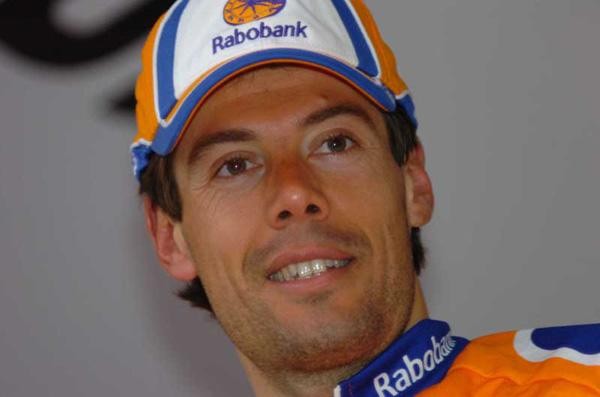
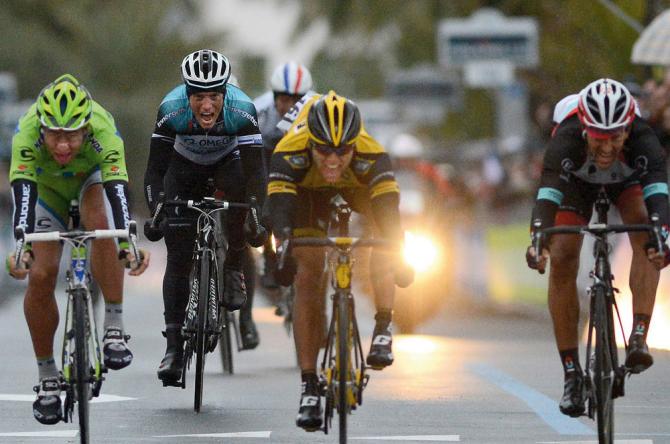
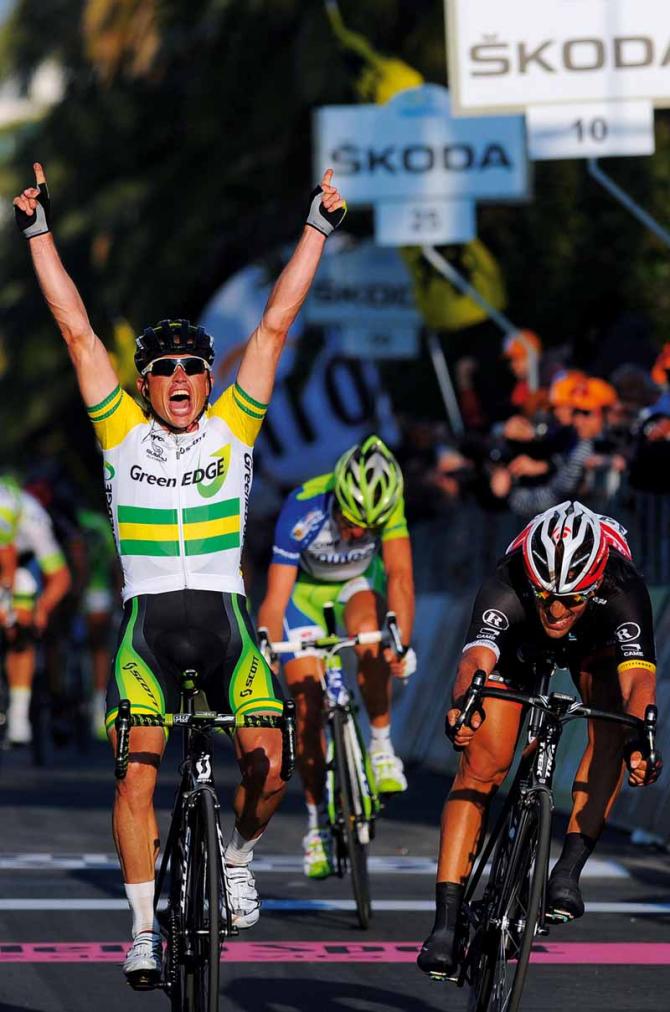
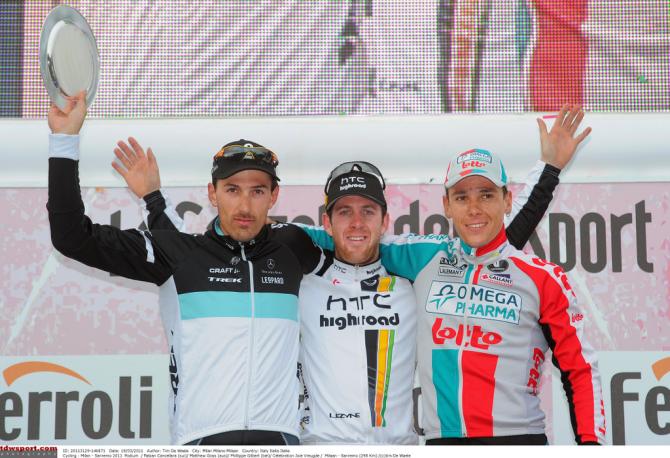
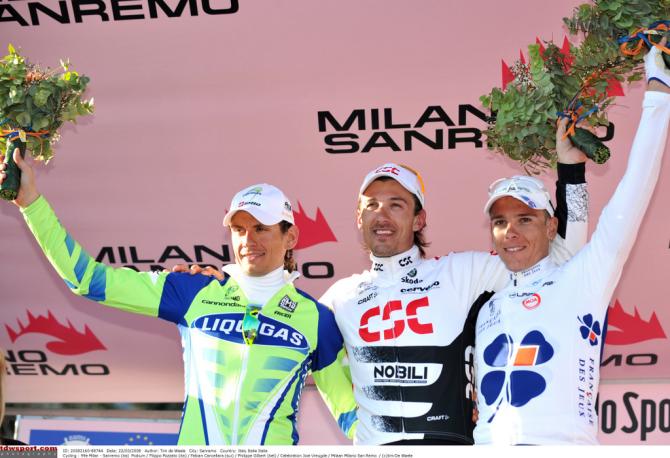
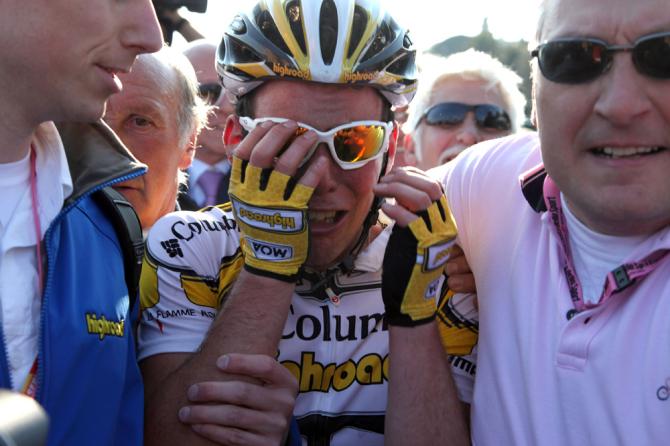
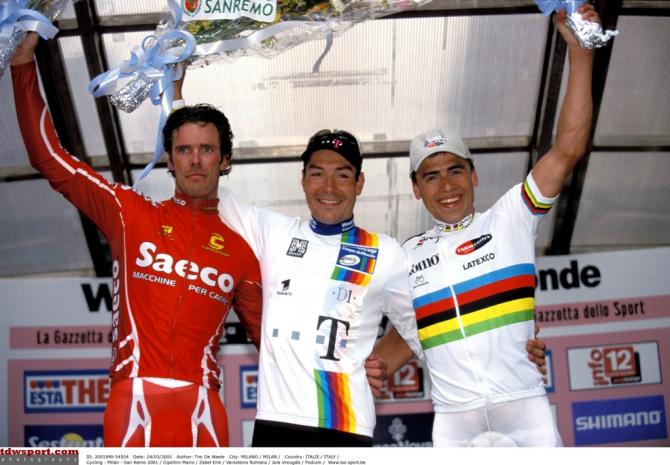
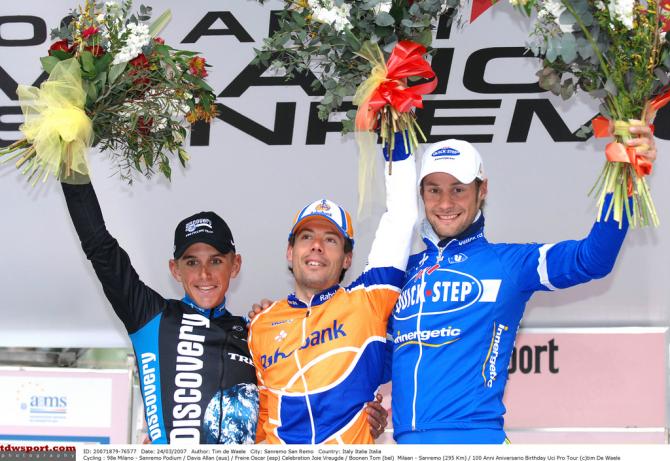
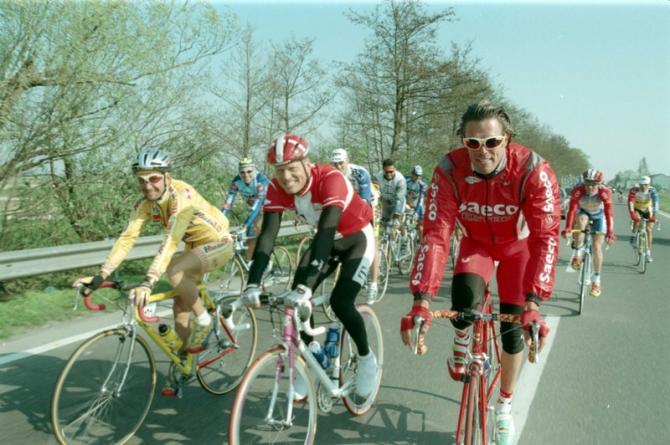
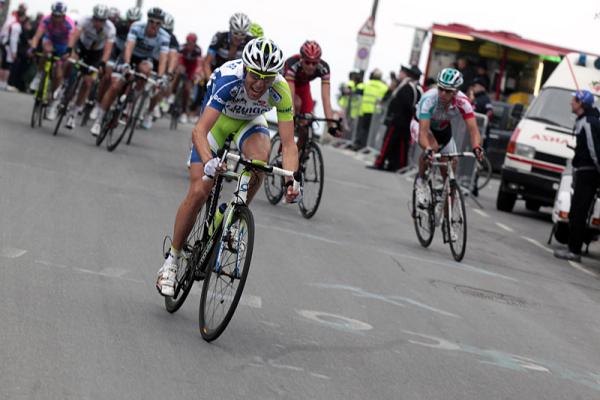
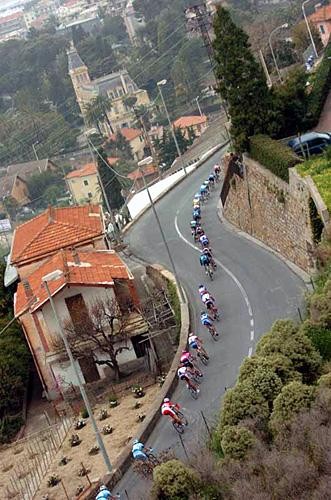
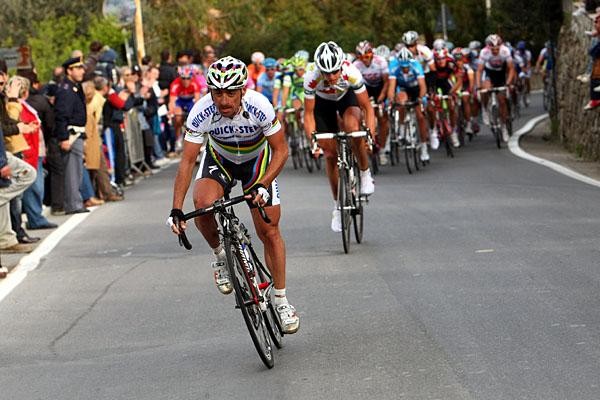
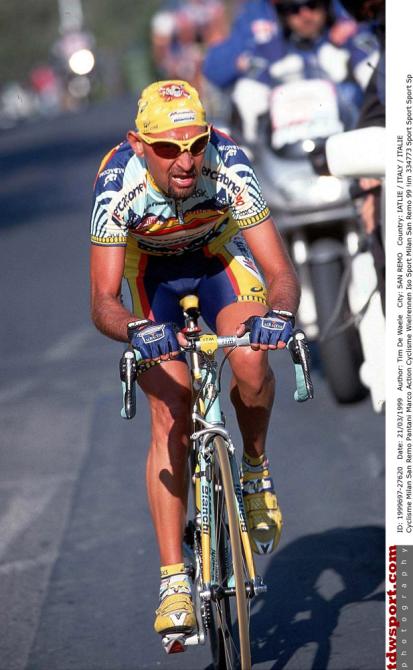
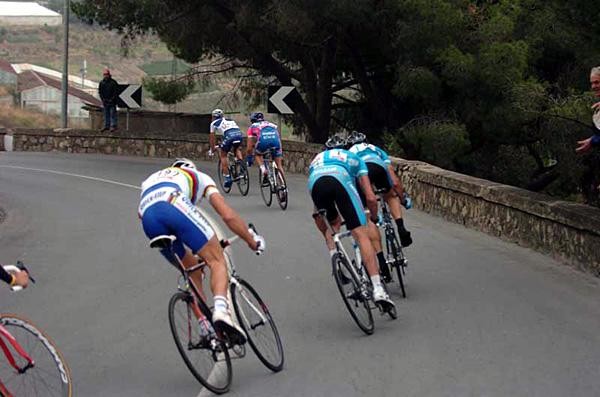
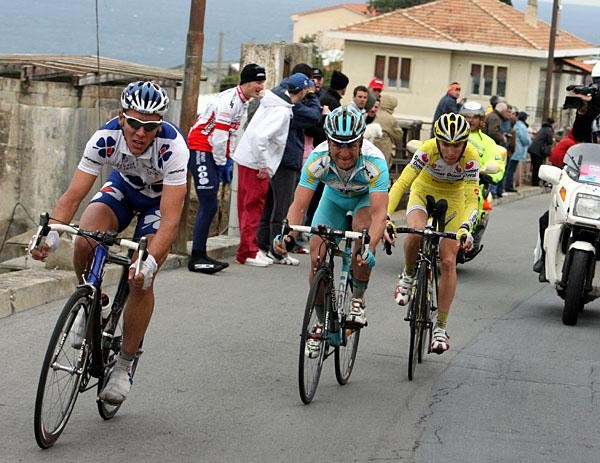
Former three times World Champion Oscar Freire also won Milan-San Remo three times, in 2004, 2007 and 2010. In the first of a series of his previews to the Classics, Freire gives Cyclingnews an exclusive lowdown of what it takes to win - and lose - cycling's first Monument of the season.
CN: This year's there's no Manie [climb] and no new Pompeiana [climb] in Milan-San Remo, how does that change things?
OF: It doesn't make matters that much easier. More than the inclusion of the Manie or not, which only makes a real difference for the out-and-out sprinters, in San Remo it's the wind and the weather in general that have a bigger influence.
With a tailwind it's far easier for people to break away and that makes the race much harder, with a headwind it's a completely different story. I can remember doing the race without the Manie and with a tailwind and it was way harder than usual, particularly on the Cipressa and the Poggio. With a headwind, it makes a bunch sprint much more likely. Even if somebody is able to get away on the Poggio then in a headwind on that last kilometre and a half it becomes almost impossible for them to stay away.
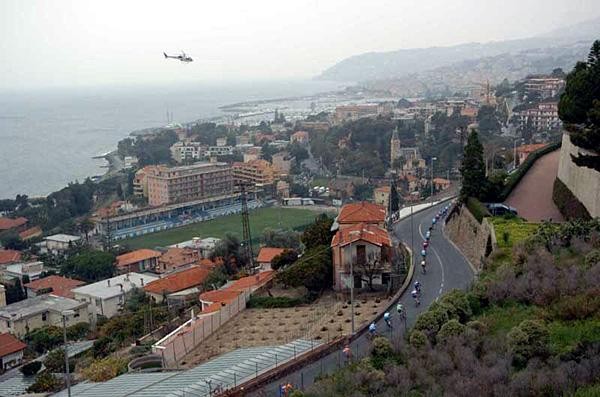
Descending the Poggio into Sanremo in 2006: Photo © Sirotti
CN: So maybe the change of route in 2008 and the increased distance after the Poggio to the finish has ultimately made more of a difference?
OF: It's certainly made things easier for the sprinters. Distance-wise, it's only an extra 600, 700 metres and another corner or two but it gives people behind more time to recover and organise a chase. Less distance gave a lot more advantage to whoever attacked over the Poggio, but either way it's the wind that matters the most.
The latest race content, interviews, features, reviews and expert buying guides, direct to your inbox!
CN: What about the rain?
OF: Together with the wind, it's the other big influencing factor in San Remo. Coming off the Cipressa, say, if it's raining, the bunch always breaks apart and it's hard to organise a chase. No rain and the bunch stays together more and breakaways are easier to catch. And actually that's true of all the descents. The second last time I raced in 2011, I fell coming off the Manie, the race split apart and as it was raining and there was a tailwind, the front group stayed away all the way to the finish.
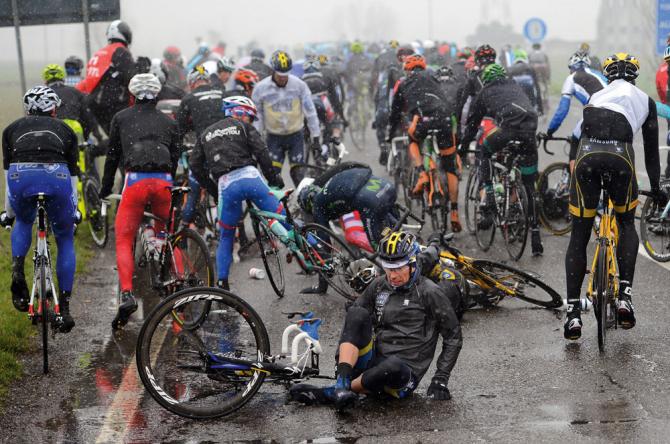
The cold and rainy 2013 Milan-San Remo was riddled with crashes. Photo © Tim De Waele/TDW Sport
CN: So if I gave you 50 euros, and it was dry and there was no wind next Sunday, who would you bet that money on? A sprinter? An all-rounder?
OF: Peter Sagan. He's a rider who's always on the front, assuming he doesn't crash. He's able to go with attacks, he can sprint, he's solid as a rock. My other favourite's John Degenkolb, a great sprinter that you can rely on to be in the front groups.
CN: Are there any riders that without the Pompeiana now have little to no chance of winning?
OF: Hm. Not exactly. The thing is that in San Remo there are lots of riders who can be up there, but actually to win it is another story altogether. That's why if you look at the palmares of San Remo, there's rarely been a surprise or a victory by a rider who was comparatively...bad. A few, yes, but the thing is, although everybody thinks they can win San Remo, it's only ever a champion who actually does it.
CN: So that old cliche that Milan-San Remo is the hardest race to win and the easiest to lose is still valid?
OF: Yes. It looks easy to win but the same thing always happens. There are loads of favourites, but it's always a great rider that wins it. And an experienced rider, too.
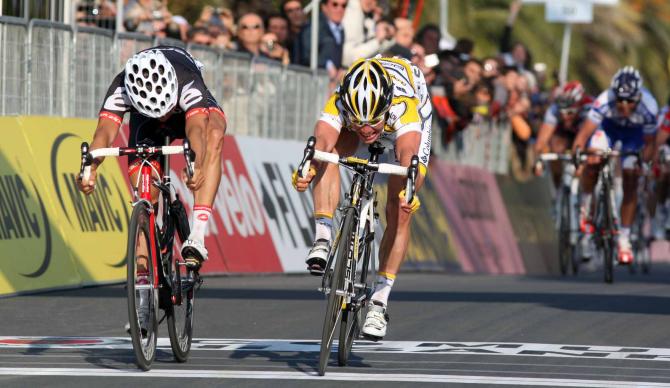
Mark Cavendish beats Heinrich Haussler to win Milan-Sanremo in 2009. Photo © Bettini
CN: So what about Mark Cavendish? How do you rate his chances?
OF: He's already proved he can win it and he could do it again for sure, so even if I don't think he's the top favourite, he will be up there.
To be honest I was surprised when he won Milan-San Remo [2009] because I was watching the race on telly that year, and he didn't look too great before the finish. So even taking into account that that year everybody went up the Manie very slowly because there was a strong headwind, Cavendish proved me completely wrong.
CN: Cavendish's sports director at Omega Pharma-Quick Step, Wilfried Peeters, once said that Milan-San Remo is the only Classic where you have to play everything on one card. True?
OF: Yes, because that's what happened to me once, I tried to play it on two cards and it didn't work at all. I went in a break with [Paolo] Bettini on the Cipressa and they caught most of us at the foot of the Poggio, I tried to keep a bit of my strength back thinking there would be a sprint and instead Bettini continued on for it alone. I could have gone with him, I should have, but I opted not to do that.

Paolo Bettini attacks on the Cipressa in 2008. Photo © Roberto Bettini
Basically in San Remo you've got to make one choice and stick with it. You can be strong, you can be up there looking good in all the different scenarios for the finale, but if somebody's betting all their money on one card, they're going to be a better San Remo player than you.
CN: Of the five climbs at the finish, the capi, is there any one of them that is particularly tricky if you don't know it?
OF: No, but you have to remember that in any of them you can lose the race. In San Remo, practically every kilometre is critical, the roads are pretty much all OK, but at any point there can be a crash. Maybe it doesn't affect you directly, but that crash, or having a puncture or choosing to stop to answer a call of nature at the wrong moment when it seems like it's going slowly but in fact things are changing really fast can wreck your chances.
It's all about having a team that keeps things under perfect control early on, but then you have to really concentrate and stay on the front in those last 100 kilometres. From the top of the Turchino you have be in the front, but not so you can actually win it: so you can be sure you don't lose it.
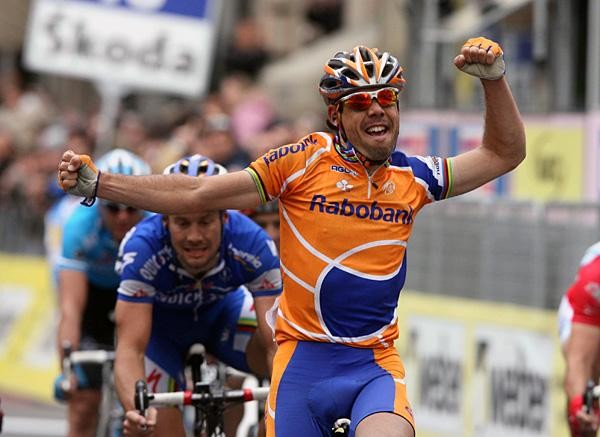
Oscar Freire winning Milan-San Remo in 2007. Photo © Roberto Bettini
CN: This will be a year when many people will remember Miguel Poblet [Spain's first and - prior to Freire - only Milan-San Remo winner in 1957 and 1959, who died last April]. But are there any Spaniards with a chance of winning this year?
OF: Hm. For the moment, I don't think so. The only rider I can see with a slight chance is Fran Ventoso (Movistar), but I think it'll be very difficult. The ones with the best chance of doing it [winning] either aren't there or rarely race it: like [Alejandro] Valverde (Movistar) - if it was a really hard fought race and he was really motivated - or Purito [Joaquim Rodriguez - Katusha] because he's a good strategist.
But given there are other races that suit them better and that on the day it would have to turn out to be a really hard-fought Milan-San Remo for them to have a chance, although they could win it, I'm guessing they're probably not even racing. [Neither Rodriguez or Valverde are taking part - Ed.]
CN: Talking of Poblet, did you get to know him well?
OF: I first met him after winning my first World's [in 1999] and again before my first Milan-San Remo. He was a very interesting guy, he'd raced in another era, but he was a rider with similar characteristics [as a Classics racer] to me.
He didn't just give me advice about living and racing abroad [Both Poblet and Freire raced most of their careers with non-Spanish teams - Ed.], his wife was good enough to give my wife advice about what it would be like for her as a rider's wife living abroad, which isn't something that often happened. Meeting him was a great experience.
Alasdair Fotheringham has been reporting on cycling since 1991. He has covered every Tour de France since 1992 bar one, as well as numerous other bike races of all shapes and sizes, ranging from the Olympic Games in 2008 to the now sadly defunct Subida a Urkiola hill climb in Spain. As well as working for Cyclingnews, he has also written for The Independent, The Guardian, ProCycling, The Express and Reuters.
